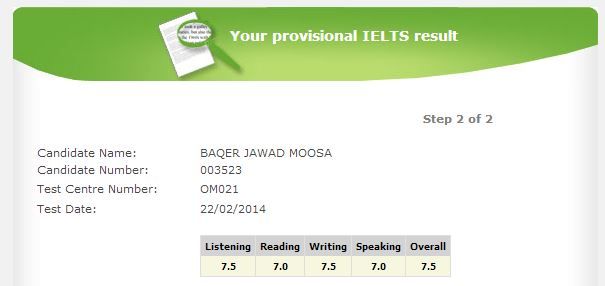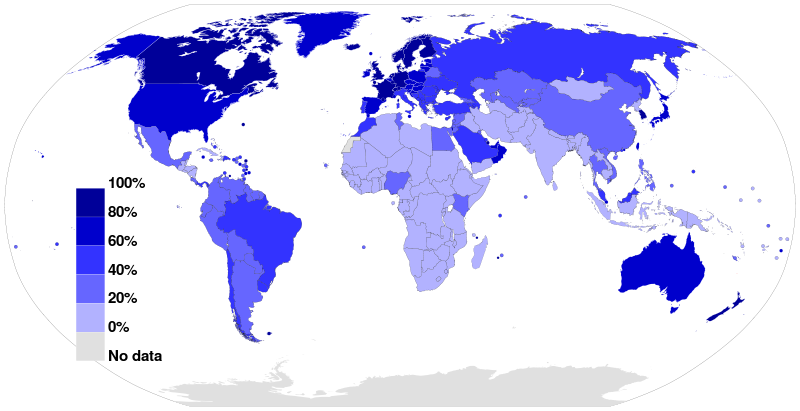Digital Divide
By reading this post, you must have a laptop or a PC with a significant internet connection. Think of all the technological features you've been gifted with. Do they seem useful & comfortable? What about those who have not been gifted with such features? One thing for sure, there's a gap between you and them. This gab is referred to as the "digital divide". In other words we can say that:-
Digital Divide relates to the gap between those people who ar able to make effective use of ICT and those who are not.
The digital divide has obvious effects on both individuals and nations. So first, let's take a look at the effects on individuals:-
Health Services-
 Medical websites have been published onto the world wide web not so long ago. People with ICT resources & skills can gain access to these sites and utilize their features. These people can be called as online patients. Online patients can run online diagnosis on their systems using the software provided by the online medical site to find a suitable treatment. If the case is a bit or more serious, then the website would recommend visiting a nearby hospital or clinic. Online patients can also look up medicine names and purchase them online.
Medical websites have been published onto the world wide web not so long ago. People with ICT resources & skills can gain access to these sites and utilize their features. These people can be called as online patients. Online patients can run online diagnosis on their systems using the software provided by the online medical site to find a suitable treatment. If the case is a bit or more serious, then the website would recommend visiting a nearby hospital or clinic. Online patients can also look up medicine names and purchase them online.
Those who are unfortunate cannot access these features and will have to carry everything the manual way where they visit a hospital, book an appointment, wait and then get a proper treatment (if "the proper" treatment is available in these areas).
Employment Opportunities
 ICT skills are now of great importance in one's CV/resume. Almost every job now-a-days requires a level of ICT skills. The more you're skilled, the more likely you'll be recruited and vice versa. Think of the schools in poor and rural areas. Normally, they won't be having the necessary ICT hardware & software to be efficient. They can hardly get their hands on a working modem therefore it's very difficult for them to provide students with the necessary ICT skills. Richer schools are the 180 degrees opposite. They have access to most of the necessary facilities and make use of them for the greater good.
ICT skills are now of great importance in one's CV/resume. Almost every job now-a-days requires a level of ICT skills. The more you're skilled, the more likely you'll be recruited and vice versa. Think of the schools in poor and rural areas. Normally, they won't be having the necessary ICT hardware & software to be efficient. They can hardly get their hands on a working modem therefore it's very difficult for them to provide students with the necessary ICT skills. Richer schools are the 180 degrees opposite. They have access to most of the necessary facilities and make use of them for the greater good.
Another thing is the online recruitment. Many jobs can be searched and applied for online. The unfortunate individuals with no access to the internet are less likely to be recruited in these jobs.
As mentioned, not only individuals are affected by this gap. Nations are affected as well. The term used to describe the effect of digital divide on nations is referred to as the "global digital divide".
There's a large gap between the Third-World countries who strive for more and the so-called "First-World" countries. These developed countries have taken the lead economically beyond the developing & undeveloped countries. This has reflected on ICT (obviously). Think of the ICT in UK & that of Oman. A great difference can be seen. Countries with widespread access to the internet can access world wide markets far more easily than those who don't. This then, by its turn, reflect on the economy of these countries.
Bridging the Digital Divide Gap
Now that you've seen the effect of digital divide both individually and nationally, what are steps to be taken to bridge this gap? There have been numerous charity organizations who dedicated their job in helping those who need it the most in providing them with sufficient and reliable hardware & software besides training them on how to use them. "TGH: Tech Goes Home" is one of these many organizations whose main focus are mainly families, schools & small businesses. It has been founded in 2000 and is situated in Boston, USA. Its activities aid children, the disabled, non-English speakers, those with low-income, and challenged neighborhoods.
According to TGH's recent statistics:-
* After one year of its imitative, 92% of families now have internet access, an increase of 52%!
* For 70% of TGH families, it is the first time the parent or caregiver has entered school
* In the last 2 years, TGH has graduated more than 10,000 participants.

References:-
Applied ICT Textbook
http://www.techgoeshome.org/give?gclid=CL6K_ZiD0b0CFQkUwwodLR8Aaw












